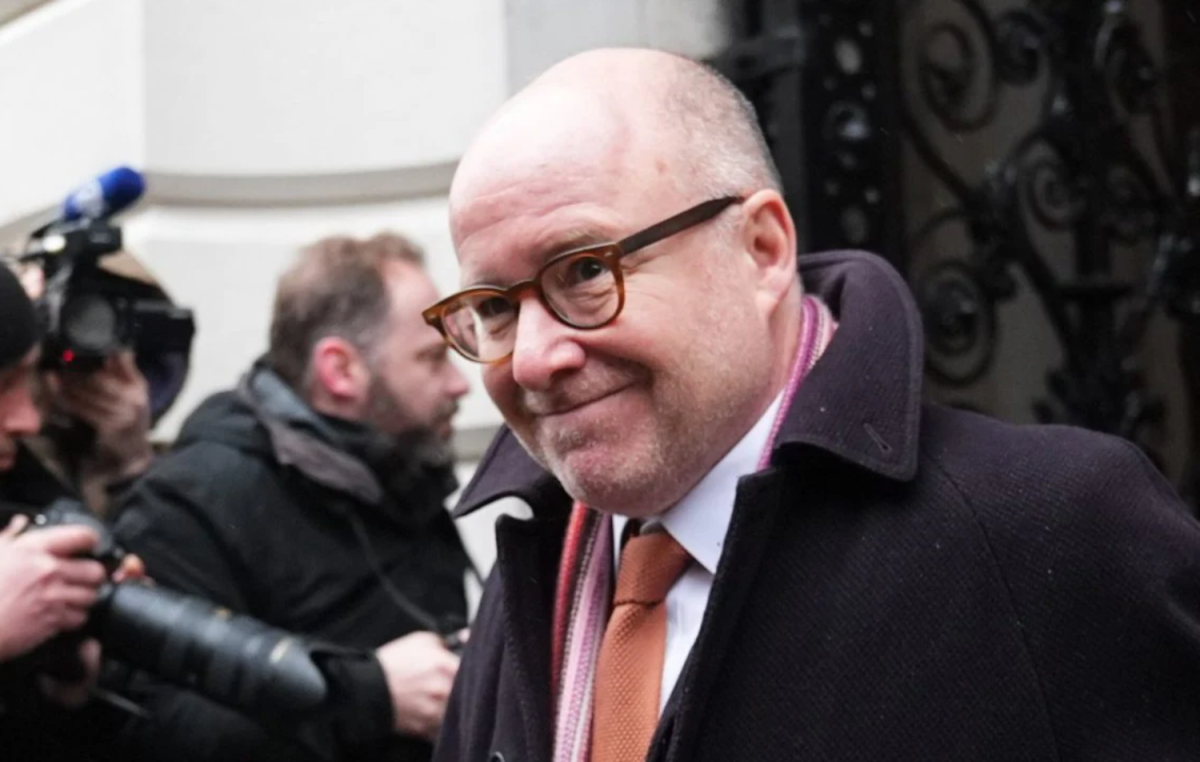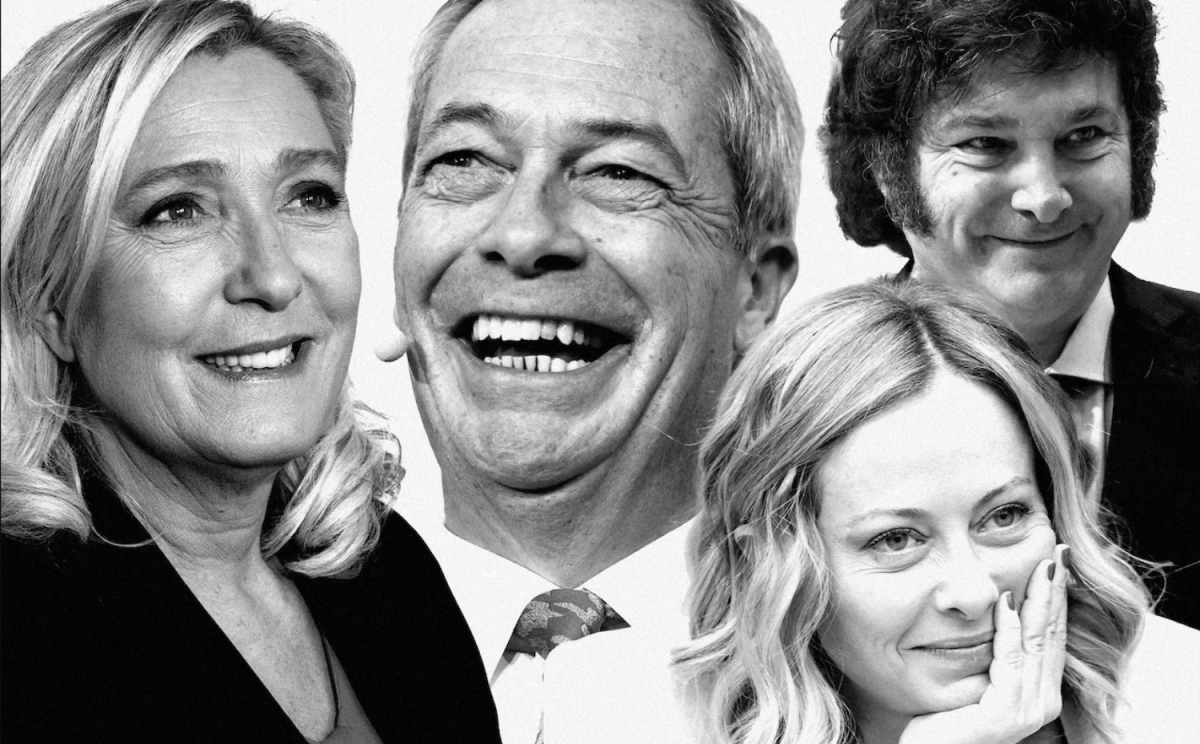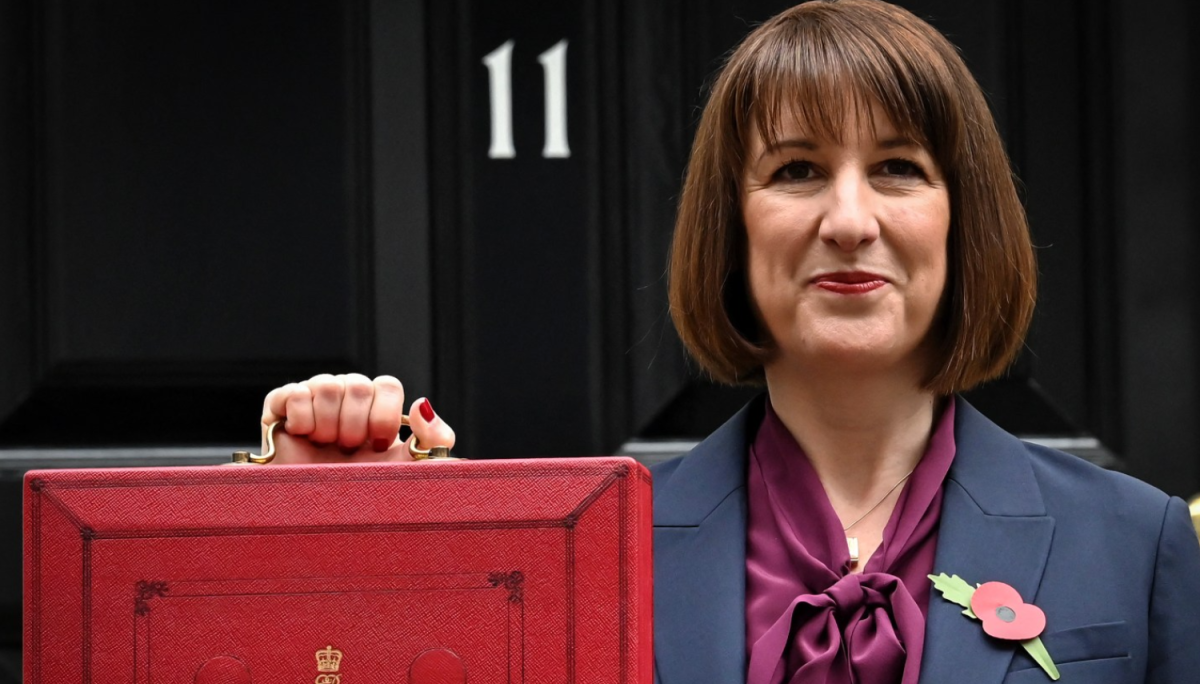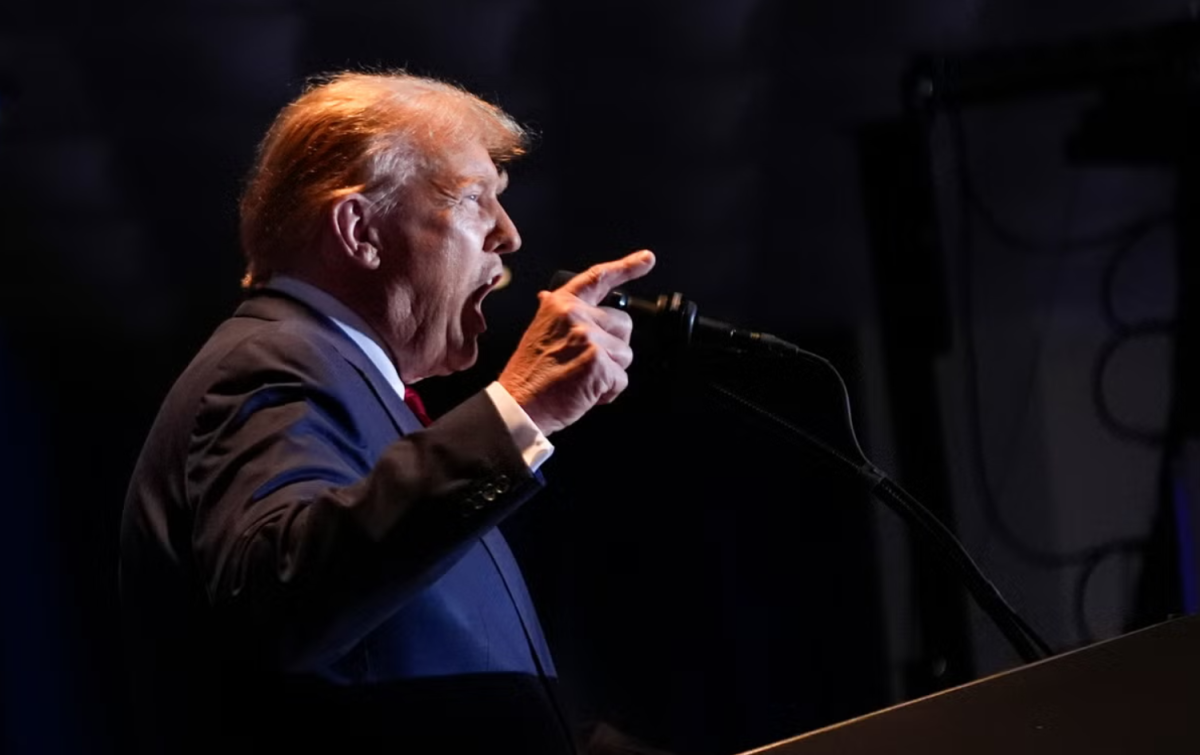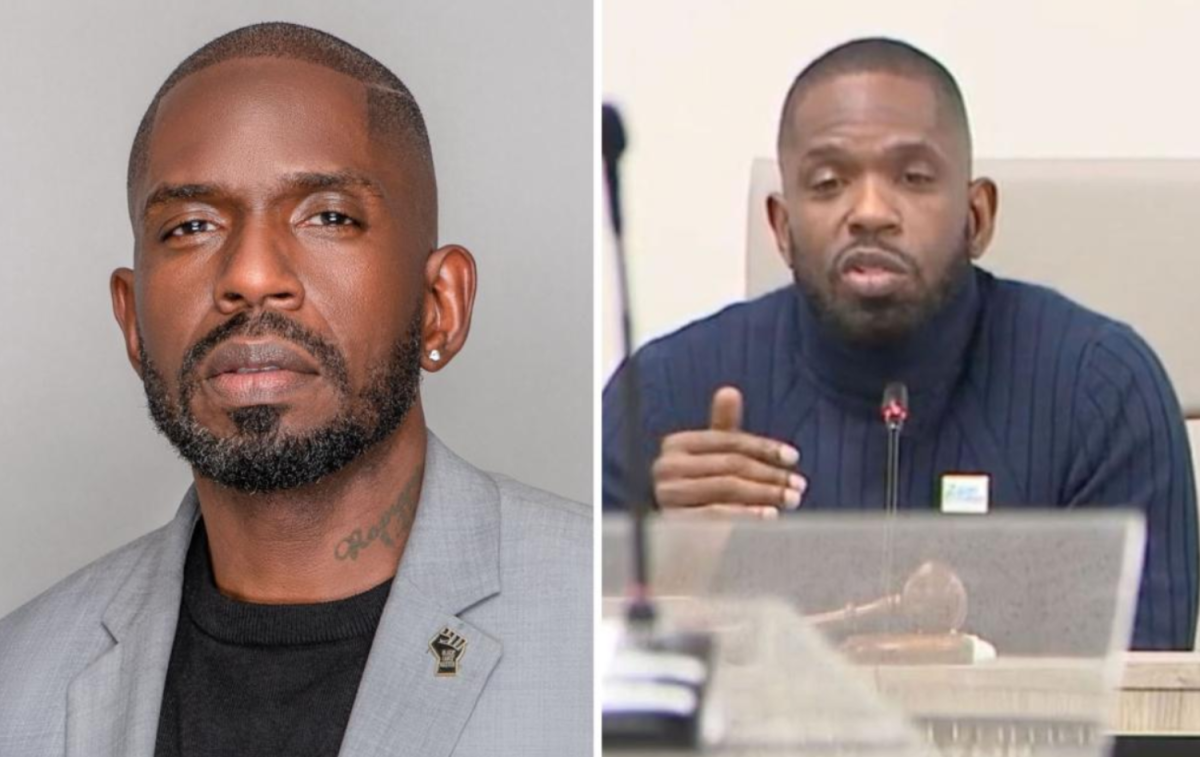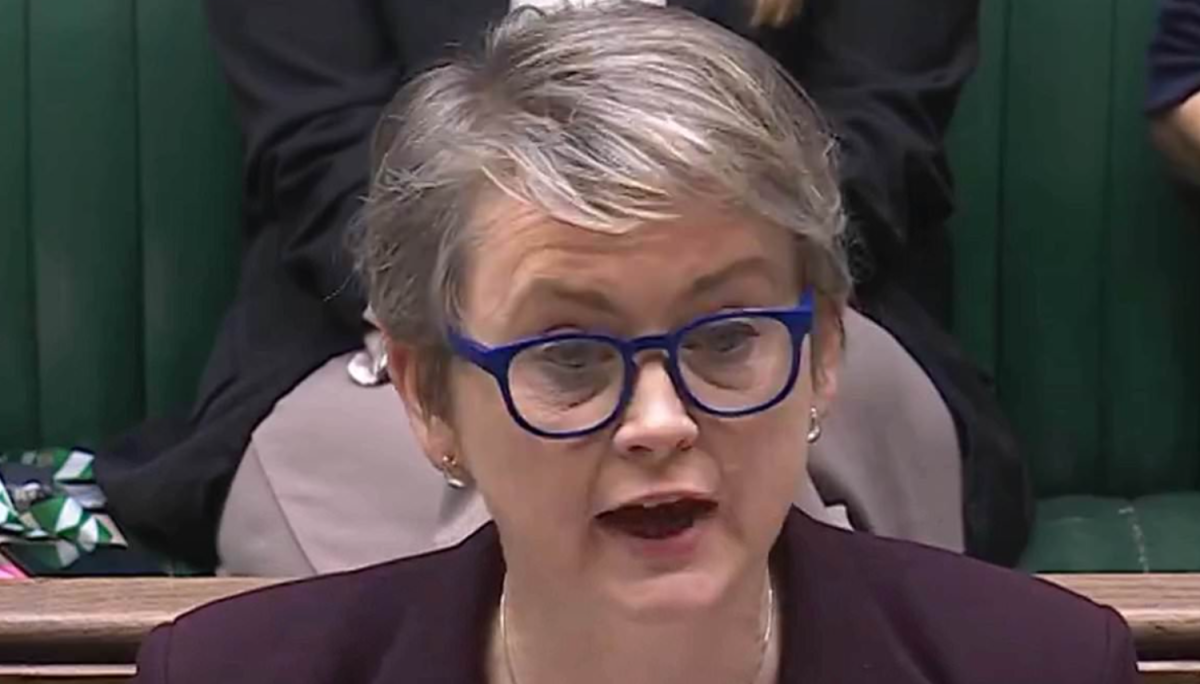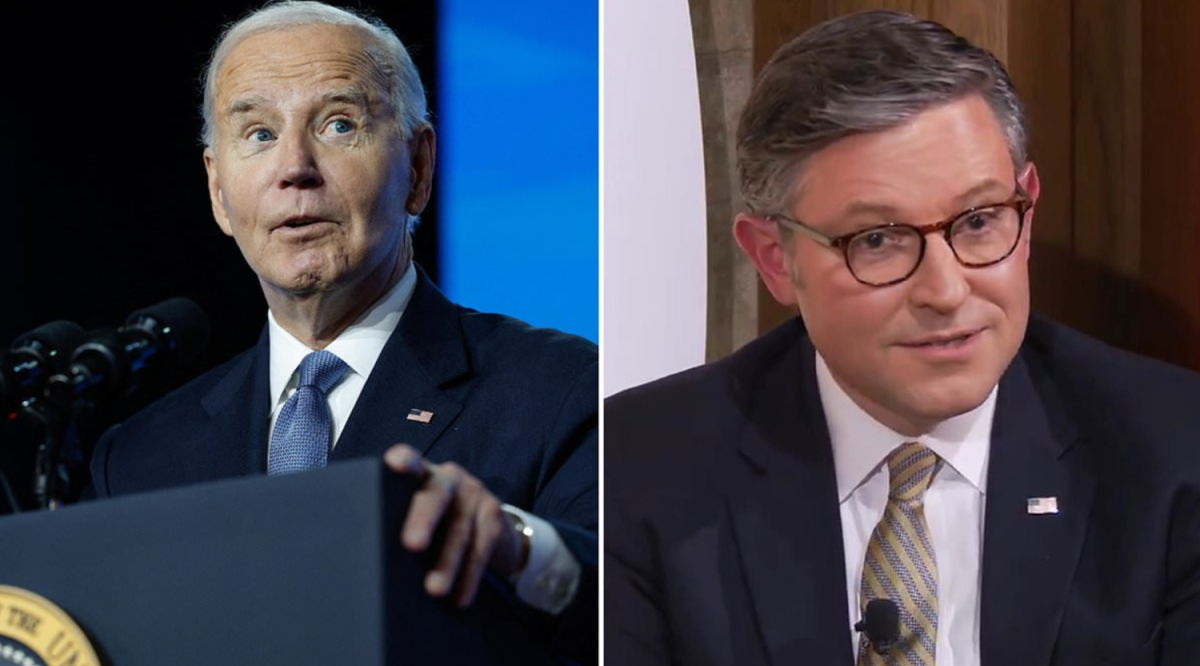-
Posts
10,807 -
Joined
-
Last visited
Content Type
Events
Forums
Downloads
Quizzes
Gallery
Blogs
Everything posted by Social Media
-
Robert Jenrick, the shadow justice secretary, has called on the Cabinet Secretary to investigate Attorney General Lord Hermer over potential conflicts of interest linked to his past legal clients, including Gerry Adams, former Sinn Fein leader. Jenrick has raised concerns that Lord Hermer's refusal to disclose whether he advised ministers on cases involving his previous clients undermines public trust in the Attorney General's Office and the rule of law. Jenrick's letter to Sir Chris Wormald, head of the Civil Service, highlighted Lord Hermer’s reliance on the convention that government law officers do not disclose whether they have advised ministers. According to Jenrick, this convention is meant to ensure the proper functioning of government, not to shield conflicts of interest from scrutiny. The controversy intensified after it was revealed that Labour intends to repeal a law preventing Adams from claiming compensation for his 1970s detention over alleged terrorist connections. Lord Hermer, who previously represented Adams in a separate legal matter involving IRA bomb victims, has refused to clarify whether he advised on the compensation issue. Additionally, The Telegraph reported on another potential conflict involving asylum seekers from the Chagos Islands. Shortly after Lord Hermer’s appointment, the government granted a "one-off" deal for 61 asylum seekers he had represented as a barrister to come to Britain, reversing a previous court decision. Lord Hermer’s past representations also include Afghans in a war crimes inquiry and Shamima Begum, a former ISIS member seeking to return to the UK. In his letter, Jenrick emphasized the importance of transparency, writing, “Refusing to provide direct answers to these questions risks undermining public confidence in the Attorney General’s Office and the rule of law itself.” He also called for an investigation to clarify whether Lord Hermer had recused himself from decisions involving his former clients and whether formal procedures were in place to manage potential conflicts. Jenrick expressed particular concern over Lord Hermer’s public remarks on the Chagos Islands. As Attorney General, Lord Hermer described Britain’s “obligation” to the islands, aligning with positions he previously advocated for in court. Jenrick argued that such comments were incompatible with proper recusal, stating, “A minister who has recused themselves from a matter due to conflict of interest should not be making speeches or public pronouncements on that very issue.” The Attorney General’s Office defended its procedures, assuring the public that rigorous systems prevent law officers from being involved in cases presenting conflicts of interest. Meanwhile, Number 10 clarified that the decision to repeal the law affecting Adams was made by Northern Ireland Secretary Hilary Benn, not Lord Hermer. Despite these assurances, Jenrick’s letter raises significant questions about the management of conflicts of interest within the government’s legal services. He has sought urgent clarification on six key issues, emphasizing the broader implications for public trust and national security. Based on a report by Daily Telegraph 2025-01-21
-
A controversial video showing the retrieval of an alleged "egg-shaped craft" by helicopter has sparked heated debate online after its debut on television. The footage, aired by NewsNation, depicts a 20-foot-long object, reportedly smooth and unmarked, being transported in a sling. The craft's design reportedly resembles unidentified aerial phenomena (UAP) encountered by the U.S. Navy in 2015, sparking speculation about potential connections. Based on a report by Daily Mail 2025-01-20
- 1 reply
-
- 1
-

-
Hostages Reunite with Families After Release from Gaza. In a moment filled with both joy, relief and heartbreak for those still held captive or dead, three hostages, Romi Gonen, Emily Damari, and Doron Steinbrecher, returned to Israel after 471 harrowing days in Hamas captivity. They arrived at the Re’im military base in southern Israel, where their mothers awaited them with open arms. The Israel Defense Forces (IDF) confirmed that the women underwent initial medical assessments upon arrival, accompanied by IDF officers, before being taken to Safra Children’s Hospital at Ramat Gan’s Sheba Medical Center. The hospital, chosen for its serene and private accommodations, is providing the women with essential care. The facility has prepared fresh clothing, toiletries, beauty care, and specially crafted meals to aid their recovery. A special medical team and support personnel are attending to their needs during what is expected to be an extended stay. Speaking at a press conference, IDF Spokesman Rear Adm. Daniel Hagari assured the public of the women’s safety. “They are in our hands. They are coming home,” he stated. The three women were escorted by IDF special forces to a facility near the border for a preliminary checkup before their transfer to the hospital. This event marks the end of a grueling ordeal for the hostages and their families, symbolizing resilience and hope amid immense challenges. As the nation celebrates their return, the focus now shifts to their recovery and reintegration into daily life. Based on a report by TOI 2025-01-20
-
A revealing account of working alongside Prince Harry and Meghan Markle sheds light on their unique personalities, the challenges of their high-profile projects, and the controversies that continue to surround them. While the Duke and Duchess of Sussex have captivated global audiences with their various endeavors, including Harry’s memoir *Spare*, Meghan’s podcast *Archetypes*, and their Netflix docuseries *Harry & Meghan*, their professional collaborations have not always been smooth. Some colleagues have praised the couple’s ambitious ideas, but others have highlighted difficulties in execution. Vanity Fair reported that Harry once proposed a podcast featuring interviews with controversial leaders like Vladimir Putin and Donald Trump. A source familiar with their audio projects shared that Harry sought to explore how these men’s life experiences shaped their actions. Reflecting on his own life, Harry reportedly questioned, “I have very bad childhood trauma. Obviously. My mother was essentially murdered. What is it about me that didn’t make me one of these bad guys?” Ultimately, Meghan launched *Archetypes* nearly two years after signing a deal with Spotify. The podcast, which aimed to empower women by challenging gender stereotypes, featured high-profile guests such as Mariah Carey and Paris Hilton. Despite its initial success, the partnership between Spotify and Archewell Audio ended in June 2023. Sources revealed that tensions and creative differences plagued the project, with one employee taking a leave of absence after just three episodes before resigning entirely. Reports have also emerged about Meghan’s alleged treatment of staff. While some dismissed earlier claims of “bullying” palace aides, others, after working with her, reconsidered. One former colleague reportedly remarked, “Oh, any given Tuesday this happened.” Another noted, “You can be yelled at even if somebody doesn’t raise their voice,” emphasizing the impact of her demeanor. The couple’s neighbors in Montecito, California, have not been shy about expressing their frustrations. Some described Harry and Meghan as “entitled” and criticized them for attracting media attention to the once-quiet area. A local lamented, “They moved away from England to get away from the scrutiny of the press, and all they do is try and get in the press in the United States.” Despite these criticisms, the Sussexes have engaged in charitable efforts, including assisting victims of recent California wildfires. They opened their home to evacuees and encouraged others to provide shelter and donations. Meghan also postponed the release of her Netflix cookery show, *With Love, Meghan*, out of respect for those affected by the disaster. However, this gesture did not escape scrutiny. Critics pointed out that the couple had previously gone ahead with high-profile projects during sensitive times for the royal family, such as their 2021 Oprah interview when Prince Philip was hospitalized and their Netflix series released shortly after Queen Elizabeth’s death. As Prince Harry and Meghan Markle continue to navigate their lives post-royalty, their every move—whether creative, charitable, or personal—remains under intense public and professional scrutiny. While they strive to redefine their roles on the global stage, the complexities of their journey have left a lasting impression on those who have worked with or encountered them. Based on a report by Daily Mail 2025-01-20
- 1 reply
-
- 2
-

-
The winds of political change have swept across the globe, marking the resurgence of the Right in a way unseen since the Cold War. Donald Trump’s return to the White House, after a stunning victory over Kamala Harris, symbolizes a new era in global politics. His win not only signals the continued dominance of right-wing ideologies in the United States but also galvanizes a worldwide movement of leaders and ideologies aligned with his provocative style and populist agenda. In November, Trump secured the popular vote, capitalizing on discontent with the left. Data from the Telegraph revealed that, across Western Europe and the US, right-wing parties captured an average of 55.7% of the vote share, outpacing left-wing counterparts by a margin not seen since 1990. This shift reflects a broader global trend. Canada’s Prime Minister Justin Trudeau resigned in January, leaving the stage for Pierre Poilievre, a conservative firebrand backed by Elon Musk. Similarly, Australia’s Right is poised to overtake its left-leaning government. Brazil’s Jair Bolsonaro hailed Trump’s victory as a triumph for “the people’s will over the arrogant designs of an elite who disdain our values, beliefs, and traditions.” Argentina’s Javier Milei, a libertarian iconoclast, extended congratulations to Trump, wishing him “success and blessings.” The victory resonated across Europe as well. Italy’s Prime Minister Giorgia Meloni tweeted her approval, while Hungary’s Viktor Orbán celebrated during the European Political Community summit, basking in the global Right’s momentum. As Trump prepares for his second inauguration, the event takes on a global dimension. Foreign leaders and controversial political figures—many considered Trump’s ideological allies—have been invited to the ceremony. Guests include Milei, Meloni, Orbán, and Salvadoran President Nayib Bukele, who unabashedly calls himself “the world’s coolest dictator.” Other invitees include Spain’s Santiago Abascal, Belgium’s Tom van Grieken, Poland’s Mateusz Morawiecki, and representatives from Germany’s AfD party. Not all will be able to attend. Bolsonaro, for instance, faces legal hurdles in Brazil, where authorities have accused him of plotting a coup. Nevertheless, the presence of key figures underscores the shared ethos of this international right-wing coalition. These leaders share more than just admiration for Trump. They embrace a provocative style, rejection of progressive values, and a disdain for what they call “the elites.” Migrants, “wokery,” and the liberal establishment are frequent targets of their rhetoric. Leveraging social media, they bypass traditional media channels to connect directly with their base. Trump’s global network extends beyond ideological solidarity. His allies range from powerful figures to vocal supporters who amplify his message on the world stage. Critics often dismiss them as populists, deriding their style and policy positions. Yet, as this movement gains momentum, its adherents believe the future belongs to them. With Trump at the helm once more, this coalition represents a political realignment that is reshaping the global landscape. While the Left struggles to regain footing, the Right marches forward, emboldened and united, convinced that their moment has arrived. Based on a report by Daily Telegraph 2025-01-20
-
In a landmark case that echoes the urgency of protecting society's most vulnerable, three men have been sentenced to prison for their roles in a grooming gang that preyed upon young girls in Keighley, West Yorkshire, during the 1990s. The sentencing has shed light on systemic failures in responding to the victims' pleas for help, as the justice system seeks to offer some solace to those who suffered. Ibrar Hussain, 47, Imtiaz Ahmed, 62, and Fayaz Ahmed, 45, received prison terms of six-and-a-half years, nine years, and seven-and-a-half years respectively. Their sentences were handed down at Bradford Crown Court, where the judge emphasized the criminal justice system's duty to protect the community's young and vulnerable members. Notably, only Hussain was present in court to begin his sentence, as both Ahmed brothers absconded during the trial and are now believed to have fled abroad. The trio's conviction is part of a broader investigation into the abuse suffered by two girls, with eight defendants in total now jailed in relation to these horrific crimes. One of the victims, now in her 40s, expressed the profound impact of the abuse in a statement read to the court: "I feel that if I had been listened to sooner, rather than later, my life could have been different. I became an object – used and abused from the age of 13." She recounted the enduring trauma, including flashbacks and nightmares, and a pervasive sense of shame. "Nothing in the world can ever fix the damage they caused me. Because of them I have lost my identity," she said, highlighting her struggle to trust people, including the services that failed to protect her. Judge Ahmed Nadim detailed the victims' distressing experiences, describing how they were plied with drugs and alcohol before being exploited by numerous men, predominantly of Asian heritage. He criticized the initial response from social services and police, who perceived the girls as "authoresses of their own misfortune." The judge lamented the failures of the authorities, noting how one girl's mother repeatedly reported her missing to Keighley police, only to be met with inaction. The abuse's context was grim: both girls had troubled home lives and were vulnerable to the predatory advances of older men who feigned care and attention. This exploitation led to repeated instances of rape, with Hussain attacking one of the girls after giving her heroin, and Fayaz Ahmed assaulting her in a school field. Judge Nadim's sentencing underscored a strong message: the criminal justice system is committed to shielding the young and vulnerable from such heinous crimes. He expressed hope that the victims might find some comfort in knowing their voices were finally acknowledged. Detective Chief Inspector Vicky Greenbank of Bradford District Police commended the bravery of the victims, who came forward in 2016 to report the abuse. She remarked, "I hope this sends a clear message that, regardless of how long ago these offences may have happened, we will pursue every avenue to get justice." Meanwhile, the search continues for the Ahmed brothers, with West Yorkshire Police issuing arrest warrants and ongoing inquiries to locate them. The convictions and ongoing efforts to bring all perpetrators to justice highlight a relentless commitment to accountability, no matter how many years have passed since the crimes were committed. The convictions culminate a harrowing chapter that began with five other men sentenced following a trial in October 2023. Among them, Mohammed Din, 47, of Keighley, received the longest sentence of 14 years for 11 counts of rape. Din was the only defendant found guilty of raping both victims, symbolizing the extensive scale of the abuse endured by the girls. As the justice system continues to pursue those who inflicted such profound harm, the case stands as a somber reminder of the critical need for vigilance and support for vulnerable individuals in society. Based on a report by Sky News 2025-01-20
-
Katharine Birbalsingh, known as "Britain's strictest headteacher," has sharply criticized Labour’s proposed school reforms, accusing Education Secretary Bridget Phillipson of being "blinded by Marxist ideology." Birbalsingh's concerns are centered around the Children's Wellbeing and Schools Bill, currently progressing through parliament, which aims to standardize policies across all state schools in England. The Bill seeks to limit academies' autonomy over pay scales, curriculum choices, staff recruitment, and uniform policies. Birbalsingh argues that these measures will undo years of progress made in supporting disadvantaged children. In a strongly worded letter to Phillipson, she questioned whether the Education Secretary was ideologically driven or simply unaware of the potential negative impacts of the proposed changes. "I don’t actually believe you hate poor kids," she wrote, "but I think you don’t know what they need and what true social mobility requires to succeed." Birbalsingh expressed particular concern over the enforcement of uniformity in school policies, predicting that it would lead to a decline in educational standards and disproportionately harm poor students. She highlighted that a rigid curriculum and prescriptive pay scales would stifle creativity and force schools to divert resources from directly supporting struggling families to comply with bureaucratic demands from Whitehall. In defending the autonomy of academies, Birbalsingh emphasized the flexibility these schools have had in tailoring their approaches to meet local needs. She warned that stripping away these freedoms would result in "catastrophic consequences" for disadvantaged communities. The headteacher also criticized plans to mandate hiring only qualified teachers and limit school uniforms to three branded items, calling for a reversal of these proposals. Birbalsingh's stance was echoed by other education campaigners and organizations. The Confederation of School Trusts (CST), representing academy trusts in England, stated there was no evidence that the freedoms enjoyed by academies had harmed staff or students. Instead, they argued, such flexibility has been essential in attracting and retaining staff in challenging environments. "Restrictive and prescriptive pay and conditions might undermine schools' and trusts' ability to attract staff to schools serving disadvantaged communities," the CST warned. Labour's education spokesman, Laura Trott, also voiced concerns about the Bill, suggesting it did not align with Labour's promises of innovation and flexibility for schools. "Until the Education Secretary amends the Bill to make clear that all schools will have full flexibility to innovate with 'a floor and no ceiling,' her words mean nothing," Trott stated. The ongoing debate highlights the tension between maintaining educational standards through uniform regulations and allowing schools the freedom to innovate and cater to their unique communities. As the Bill continues to be scrutinized, the challenge will be finding a balance that ensures equity without stifling the individuality and creativity that many educators believe are crucial for fostering a thriving educational environment. Based on a report by Daily Mail 2025-01-20
-
Since the general election was announced, a remarkable trend has emerged in the United Kingdom: one dollar millionaire has departed the country every 45 minutes. This unprecedented exodus, reportedly spurred by Labour’s tax reforms, has ignited debates over their economic impact. A record number of wealthy individuals have left Britain since Sir Keir Starmer came to power, raising concerns about the nation’s ability to attract and retain international investors. The Treasury now faces increasing pressure to reconsider its stance on non-domiciled (non-dom) residents, as the scale of departures underscores the unintended consequences of recent tax changes. Wealth advisers report that an increasing number of British entrepreneurs are also preparing to leave, citing tax increases introduced in the autumn budget. In 2024 alone, Britain experienced a net loss of 10,800 millionaires due to migration—a staggering 157% increase from the previous year. This outflow placed the UK second only to China in terms of losing affluent residents. New World Wealth, a global analytics firm, compiled the data, revealing that the net figure underrepresents the total exodus, as it also accounts for millionaires who moved to the UK during the same period. Many departing millionaires have relocated to other European nations like Italy and Switzerland, or further afield to the United Arab Emirates. Among the wealthiest leaving the UK were 78 centi-millionaires and 12 billionaires. These trends gained momentum following the general election announcement, with non-doms at the center of the issue. The UK’s longstanding non-dom regime allowed individuals to shelter their offshore income and gains from British taxation, provided they paid an annual fee. However, starting this April, Labour is set to abolish this system in favor of a residence-based framework that will also subject non-doms’ overseas assets to UK inheritance tax (IHT). A survey conducted by Oxford Economics revealed that nearly two-thirds of over 700 non-doms or their tax advisers were either planning to leave or contemplating departure due to these reforms. The introduction of IHT on global assets was cited as the principal motivator, particularly as other jurisdictions either lack such taxes or offer more favorable exemptions. The Office for Budget Responsibility (OBR) has estimated that 12% to 25% of non-doms may leave as a result, potentially affecting the economy, tax revenues, and philanthropic contributions. The survey highlighted the significant economic contributions of non-doms, who paid an average of £800,000 in VAT last year, £890,000 in stamp duty over five years, and invested an average of £118 million each in the UK. Additionally, they contributed an average of £5.9 million to charitable causes. Despite the Treasury’s projection that ending the non-dom regime will generate £2.5 billion annually over five years, Oxford Economics predicts the changes will cost nearly £1 billion per year, excluding reduced VAT receipts and other taxes. David Hawkins of Foreign Investors for Britain labeled the policy “a monumental act of national self-harm.” This sentiment is echoed by tax professionals and entrepreneurs. Rachel De Souza, a private client tax partner at RSM UK, noted that demand for relocation advice surged after the budget announcements, driven initially by non-doms and subsequently by British entrepreneurs. She remarked, “In virtually all cases, these entrepreneurs are citing the budget announcements as the reason for seeking to move.” Charlie Mullins, founder of Pimlico Plumbing, is among those who have already relocated, settling in Spain. He remarked, “Britain is in trouble. I’m not going to blame Labour completely—the Tories also lost the plot—but Labour have made it worse. They’ve raised taxes and added new employment laws like getting a contract from day one. It makes it hard to run a business.” The unfolding situation raises critical questions about the long-term implications of Labour’s tax policies on the UK’s economic landscape. Based on a report by Daily Telegraph 2025-01-20
-
Donald Trump’s rhetoric on immigration was once dismissed as divisive, coarse, and out of touch with mainstream America. Today, it appears that his controversial approach has not only endured but has reshaped the national conversation. Recent legislative moves underscore how far the political landscape has shifted since Trump first announced his candidacy in 2015. This week, the Senate advanced the Laken Riley Act, a measure allowing the deportation of migrants arrested for theft, burglary, or shoplifting. Notably, ten Democrats joined Republicans to support the bill. Similarly, 48 House Democrats crossed party lines to advance the legislation, despite warnings from civil rights groups that it could pave the way for mass deportations. Another bill, proposed by Nancy Mace, received even broader bipartisan support. It seeks to make sex crimes such as rape deportable offenses, despite the fact that such crimes are already grounds for deportation. Sixty-one Democrats backed the measure in the House. These developments come as Trump positions himself for a potential return to the White House, promising mass deportations and expanded border security policies—a platform now resonating with a substantial portion of the American electorate. A decade ago, Trump’s hardline stance would have been unthinkable for many. His remarks in 2015, labeling Mexican immigrants as rapists and criminals, drew widespread condemnation. Major brands like Macy’s severed ties with him, NBC canceled *The Apprentice*, and his rhetoric alienated significant portions of the public. Meanwhile, bipartisan efforts to reform immigration policy were underway. In 2013, Senator Marco Rubio and other Republicans collaborated on legislation offering a pathway to citizenship for undocumented immigrants. Although the bill passed in the Senate, it was met with hostility from Republican voters, ultimately stalling in the House. When Trump secured the presidency in 2016, Democrats rallied against his policies with slogans like “No human is illegal” and “Love trumps hate.” Yet, even as Democrats dominated the 2019 presidential primaries with calls to decriminalize border crossings, public opinion on immigration began to shift. Joe Biden, one of the few candidates opposing decriminalization, maintained that illegal border crossings were a crime—a stance he carried into his presidency. The dynamics shifted further during Biden’s tenure. A surge of migrants at the U.S.-Mexico border triggered voter frustration, including among Hispanic communities, where immigration emerged as a critical issue. Public support for reduced immigration grew, with more Latinos backing measures like border walls and mass deportations. Trump’s rhetoric, including framing immigration as an “invasion,” has now become mainstream among Republicans. Democrats, scrambling to counter accusations of being “soft” on border security, tied border enforcement measures to funding bills for Ukraine and Israel in a bid to showcase toughness. Perhaps the most striking outcome of Trump’s strategy is its impact on Hispanic voters. Contrary to initial predictions, his policies did not alienate this demographic. Instead, he flipped majority-Hispanic areas in Texas, gained traction with younger Hispanic men, and secured pivotal wins in states like Arizona and Nevada. Trump also reconciled with Republican critics such as Rubio and Lindsey Graham, solidifying his hold on the party. Looking ahead, Trump’s second term could see less resistance to his immigration agenda than his first, when the family separation policy ignited fierce backlash. Democrats, wary of appearing out of step with voter priorities, may feel compelled to support stricter border security measures. However, this shift may not be permanent. History has shown that public sentiment on immigration can swing dramatically. Should Trump’s policies be perceived as excessively harsh or fail to yield tangible results, opposition could reignite. Still, the political Overton window has moved. While America may continue to see itself as a welcoming nation, the conditions for that welcome now reflect a stricter, Trump-inspired consensus on immigration. Based on a report by The Independent 2025-01-20
-
A mayor in Georgia, previously recognized for his activism with the Black Lives Matter movement, now faces serious accusations of financial misconduct. Khalid Kamau, the mayor of South Fulton, is alleged to have used approximately $26,000 in public funds for unauthorized expenditures, raising concerns about accountability and transparency within her administration. According to reports, the accusations include the misuse of city-issued credit cards for personal expenses, such as an overseas trip and other unrelated purchases. This revelation has sparked outrage among local officials and constituents who trusted the mayor to prioritize the community's needs over personal gain. “This is a blatant violation of public trust,” stated a local government watchdog. “The public funds allocated to elected officials are meant to serve the city and its residents, not to finance personal indulgences.” Kamau’s background as a BLM activist and his rise to public office were marked by promises of reform and community-centered governance. His supporters have expressed shock and disappointment over the allegations, as they contradict the values she championed during her activism and campaign. In his defense, Kamau has claimed that the expenditures were misunderstood and insists that no malicious intent was involved. “Every action I have taken has been in service of the people of South Fulton,” he said during a recent interview. “These allegations are an attempt to discredit the progress we’ve made as a city.” Despite his defense, questions remain about the oversight mechanisms in place to monitor the use of public funds. City officials are reportedly conducting an internal audit to determine the full extent of the alleged misuse. Local residents have voiced mixed reactions. Some are calling for the mayor’s immediate resignation, while others believe he deserves a fair investigation before any judgment is passed. “I feel betrayed, but I also think we should wait for the facts to come out,” one resident commented. This situation highlights the ongoing challenges faced by elected officials in maintaining transparency and trust with their constituents. As the investigation unfolds, the outcome will likely have lasting implications for both Kamau’s career and the political landscape of South Fulton. Based on a report by NYP 2025-01-20
-
The UK prison service has begun recruiting prison officers from Nigeria and other countries to address severe staffing shortages, marking the first time it has sponsored skilled worker visas for overseas employees. However, this move has led to unexpected challenges, with reports of some recruits sleeping in cars or setting up makeshift camps due to a lack of accommodation. The recruitment follows an October 2023 policy change that added prison officers to the list of skilled workers eligible for sponsorship. While this initiative aimed to tackle workforce shortages, it has revealed logistical and operational shortcomings. Some overseas recruits, particularly those from Nigeria, arrived assuming that accommodation would be provided, only to find none available. Mark Fairhurst, president of the Prison Officers Association (POA), highlighted troubling cases where recruits were forced into difficult living conditions. “We have got problems with people who turn up at the gates with cases in tow and with their families saying to the staff: ‘Where is the accommodation?’” he said. One recruit reportedly commuted 70 miles from Huddersfield to Nottingham before opting to sleep in his car outside the prison. In another case, officers set up camp in a wooded area near their workplace. The Ministry of Justice (MoJ) has sponsored up to 250 foreign nationals to join the prison service, with candidates undergoing online interviews and vetting processes. Prison governors suggest the demand has grown significantly, with many applicants hearing about the opportunity through online networks, particularly within the Nigerian expatriate community. Tom Wheatley, president of the Prison Governors Association (PGA), noted that this influx has created challenges in certain areas. “It’s turned into an approach that has been promoted online by the expat Nigerian community,” he said. In rural prisons, disproportionate numbers of foreign officers have led to difficulties with integration into local communities, as well as concerns about language barriers and communication issues. The recruitment strategy has also drawn criticism for its reliance on remote hiring methods. Mr. Fairhurst expressed concerns over the lack of face-to-face interviews, describing the Zoom-based process as inadequate. “Recruits were then given only six weeks’ training, which was not enough time to learn how to manage prisoners,” he said. He labeled the current system as “simply not fit for purpose,” warning that it could lead to the hiring of underqualified or corrupt officers. The prison service has defended its approach, asserting that all officers undergo robust assessments and extended training before beginning their roles. A spokesperson stated, “We also continuously review our recruitment process to ensure our officers are best suited to their role and have strengthened vetting procedures to root out applicants who fall below our high standards.” While the initiative to recruit overseas workers seeks to address the staffing crisis, the accompanying issues highlight significant gaps in planning and execution. As the prison service continues to adapt, questions remain about how effectively it can balance workforce demands with ensuring proper integration, training, and support for its recruits. Based on a report by Daily Telegraph 2025-01-20
-
Gloucestershire County Council recently found itself at odds with local farmers after launching a campaign encouraging residents to switch from cow’s milk to vegan alternatives to reduce their carbon footprint. The council's "Swaps in Seconds" campaign initially recommended this change as part of a broader effort to promote small, environmentally friendly lifestyle adjustments among Gloucestershire’s population of over half a million. The campaign was soon revised following objections from farmers and the Countryside Alliance, who viewed the recommendation as an attack on the dairy industry. The council subsequently removed the suggestion from its promotional materials. Councillor David Gray, the cabinet member for the environment, explained the rationale behind the campaign to the BBC. “Dairy is one of the biggest producers of methane, so our suggestion is: every so often instead of having milk with your coffee, you have oat milk or soy, and that way make a small difference in the overall impact of your lifestyle on the environment," he said. However, local farmers were not convinced. Jacob James, a dairy farmer, expressed his frustration with the campaign, labeling it “extremely frustrating.” Speaking to the BBC, James argued, “Unfortunately, emissions are a given, no matter what route we go down, and we should be looking at getting the best bang for our buck in terms of the nutrients produced from those emissions.” James elaborated on the importance of local resources, pointing out, “We have a plentiful supply of water here and also land that is best at growing grass. Grass is the primary driver of high-quality milk production and the cows actually fertilise their own land.” Gloucestershire, as noted on the council’s website, is predominantly agricultural, with the Vale of Gloucester traditionally associated with dairy farming, beef pasture, and orchards. Given this backdrop, the suggestion to replace dairy products with plant-based alternatives struck a nerve with the local farming community. The Countryside Alliance also criticized the council's recommendation. Mo Metcalf-Fisher, the organization’s director of external affairs, described the move as an attack on freedom of choice and a disregard for the pressures facing dairy farmers. “At a time when our farmers are under immense pressure because of the family farm tax, it is astonishing that Gloucestershire County Council would choose to prioritize attacking dairy farmers in this way,” Metcalf-Fisher stated. In response to the backlash, a spokesman for Gloucestershire County Council clarified the intent behind the campaign. “Gloucestershire has an amazing farming community who go beyond the call of duty to produce local milk that people across the county enjoy. What we’ve published today is a series of swap suggestions for people to consider, from food to transport to clothing. We didn’t mean to cause offence or to suggest people shouldn’t support their local farmer,” the spokesman explained. The council’s attempt to encourage small, environmentally conscious choices inadvertently sparked a debate about the balance between environmental initiatives and support for traditional farming practices. As the council backtracked on its dairy swap suggestion, it highlighted the sensitivity surrounding agricultural livelihoods in the face of growing environmental concerns. Based on a report by BBC 2025-01-20
-
Labour has been accused of a "conspiracy of silence" after several MPs representing areas affected by grooming gangs declined to state their position on a national inquiry into the issue. The accusations emerged as only a handful of MPs responded to inquiries from the *Daily Mail*. Out of more than 20 Labour MPs contacted from constituencies with histories of child rape and sexual abuse, only three replied. This led to criticism of a "dereliction of duty" for those who remained silent. Among the respondents, Luke Myer and Shaun Davies, representing Middlesbrough South and Telford, respectively, voiced their support for a national inquiry. Their statements added to the growing number of Labour MPs—now five—who have openly backed the call for a comprehensive investigation. The push for a national inquiry gained momentum after MPs Sarah Champion from Rotherham and Paul Waugh from Rochdale reversed their initial stance against it. Their change of heart was seen as a significant shift in the party’s approach to handling the sensitive issue. Further support came from other Labour figures, including Dan Carden, MP for Liverpool Walton, and Greater Manchester Mayor Andy Burnham, who have also expressed the need for a broader probe into grooming gangs. However, not all Labour representatives share this view. Chi Onwurah, MP for Newcastle upon Tyne Central and West, reiterated her previous position, suggesting that a national inquiry might not be necessary. She referred to a statement she made last week, emphasizing a more localized approach. Amidst the political debate, the Government initiated small-scale local investigations into the grooming gang problem. Home Secretary Yvette Cooper announced that five reviews would be conducted in towns severely impacted by these crimes. Yet, the scope of these investigations has drawn criticism for being insufficient, as they lack the authority to summon witnesses, leading to concerns about their effectiveness. The controversy over Labour’s response to grooming gangs and the broader call for a national inquiry highlights the tension between addressing local issues and ensuring comprehensive national oversight. As the discussion continues, the Labour Party faces mounting pressure to clarify its stance and demonstrate a commitment to tackling this critical issue head-on. Based on a report by Daily Mail 2025-01-20
-
Canada needs to take stronger measures to prevent becoming a refuge for members of Iran’s regime, according to Iranian Canadians who participated in consultations released by the Hogue Commission. The commission summarized concerns raised by the Iranian diaspora about foreign interference and proposed steps to address the issue. Participants highlighted the necessity of more robust screening processes to identify and block former officials of the Islamic Republic government from entering Canada. “Certain attendees talked about the presence of Iranian government officials who were involved in criminal activities and human rights abuses in Canada,” the commission noted. Additionally, some community organizations have reportedly been “infiltrated and taken over by persons acting on behalf of the Iranian regime.” Nazanin Afshin-Jam MacKay, a Tehran-born human rights activist, underscored these concerns, calling Canada “a safe haven for Islamic regime officials and their families.” She recounted the emotional toll of seeing regime-affiliated individuals in Canada, including an incident where “Iranian nuclear officials” attended an event at the University of British Columbia. Afshin-Jam MacKay also described how children of regime officials displayed wealth in Vancouver, driving luxury cars, while some realtors allegedly facilitated the laundering of funds from Iran. One witness recalled spotting a former Iranian police chief in Richmond Hill, Ontario, and mentioned a former cabinet minister vacationing in Montreal. Such accounts point to broader issues of accountability. As one unnamed witness told the inquiry, the Iranian regime “wants to exert influence in Canada because there is a large and well-educated Iranian diaspora.” Suggestions to address the problem included creating a specialized section within immigration or foreign affairs to scrutinize applications from Iran more rigorously. Witnesses also advocated for better training for border agents and using tools like the Faces of Crimes online database to track regime officials’ human rights violations. The commission also highlighted recent incidents of threats against Iranian dissidents in Canada, often extending to their families still in Iran. Javad Soleimani, whose wife was killed when Iran’s Islamic Revolutionary Guard Corps (IRGC) shot down a passenger plane in 2020, revealed that Iranian intelligence contacted him months after the tragedy. Soleimani, who lost 55 Canadian citizens and 30 permanent residents in the attack, was told to remove a social media post critical of the regime. When he refused, they threatened his family in Iran. Soleimani also alleged that IRGC members “freely work and study here in Canada” and that Iran actively pushes its agenda through community groups and mosques. He urged authorities to investigate these activities thoroughly. The accounts and recommendations brought forward by the Iranian Canadian community illustrate the urgency of addressing foreign interference and ensuring Canada remains a sanctuary for those fleeing oppression, not for those perpetuating it. Based on a report by Global News 2025-01-20
-
As Donald Trump prepares to assume office as the 47th President of the United States, the nomination of Lord Peter Mandelson as the UK ambassador to Washington has sparked diplomatic tension. Trump is reportedly considering rejecting the appointment, a move that would be highly unusual and indicative of strained relations between the incoming administration and Sir Keir Starmer's Labour government. Sources within Trump’s team revealed uncertainty over whether Peter Mandelson’s credentials will ultimately gain Trump’s approval. Concerns about Mandelson’s perceived connections to China appear to be at the heart of the controversy. “It is quite possible that Mandelson’s credentials could still be rejected,” said one source, adding that “there are serious concerns about his links to China.” Labour officials have framed the nomination as a testament to Mandelson’s stature, calling it “a huge compliment” that Sir Keir Starmer would choose such a senior figure. However, a source from Trump’s camp dismissed the gesture, stating bluntly, “We are not buying that.” Efforts to ease tensions have not been universally embraced. Notably, Lord Mandelson declined an invitation to a pre-inauguration event in Washington hosted by Nigel Farage, a key ally of Trump, where the outgoing UK ambassador, Dame Karen Pierce, was present. Pierce’s attendance reportedly left a positive impression on Trump’s transition team, further complicating Mandelson’s position. The approval process for an ambassador requires the presentation of “letters of credence” to the host country’s head of state. In this case, Trump would need to formally accept Mandelson’s credentials for the appointment to proceed. While rare, the rejection of a nominee at this stage is not without precedent and would signal a significant diplomatic rift. The nomination of Lord Mandelson, who previously served as a business secretary and EU trade commissioner, was partially motivated by a desire to bolster prospects for a US-UK trade deal. However, his perceived ties to China have raised red flags within Trump’s administration, further straining an already delicate relationship. In a conciliatory opinion piece, Mandelson acknowledged Trump’s broad electoral appeal, noting, “The astute among America’s allies will be observing the comprehensive nature of Trump’s November election win. On the numbers alone – across the popular vote and spanning different demographic groups – this victory demonstrated a campaign that responded to the central concerns and interests of a vast swath of the American people.” Despite Mandelson’s diplomatic overtures, sources suggest that tensions between the Labour government and Trump’s team have only deepened due to the nomination. The decision on whether Trump will accept Mandelson’s credentials remains unresolved, casting a shadow over the early days of the UK’s relationship with the new administration. Based on a report by The Independent 2025-01-20
-
In the closing chapter of Joe Biden's presidency, discussions surrounding the 82-year-old leader's visible decline have taken center stage. Observers from both sides of the political spectrum, ranging from Speaker of the House Mike Johnson to members of Biden's own team, have expressed concerns about his capabilities during his final months in office. Johnson, who will continue as Speaker of the House, recounted a troubling interaction with Biden in January 2024. According to Johnson, the president made a bewildering admission during a meeting, stating that he "didn't do" an executive order he had, in fact, signed months earlier. Johnson said after fighting for 9 weeks with Biden's staff, he was finally able to get a meeting with the president. When he arrived, Johnson says he was "ambushed" by Kamala Harris, Chuck Schumer and Hakeem Jeffries. Biden, who apparently didn't know what was going on, asked the others to leave so he could meet privately with Johnson. "It occurred to me he was not lying to me. He genuinely did not know what he had signed. I walked outta that meeting with fear and loathing because I thought, 'We are in serious trouble.'" Based on a report by Daily Mail 2025-01-20
-
The release of hostages in the Israel-Hamas conflict has been met with widespread relief and celebration, but the implications of the deal cast a troubling shadow over the future. While the return of men, women, and children held in terrifying captivity is undeniably grounds for rejoicing, the broader consequences of this arrangement reveal a grim reality: Hamas has once again demonstrated that hostage-taking is an effective strategy. Had Hamas simply murdered the over 1,200 individuals during the October 7 attacks, they would have gained no diplomatic leverage. But by capturing hostages, they achieved a series of significant advantages: hesitation on Israel’s part, divisions within Israeli politics, manipulation of international opinion, and increased diplomatic clout. This deal validates their actions, setting a precedent that could embolden similar tactics in the future. For Hamas and other Islamist groups, the internal message is clear—capturing, torturing, and killing a proportion of hostages yields power. It is a chilling lesson that threatens future stability. As Hamas hopefully fulfills its part of the agreement by returning around 60 hostages, alongside 34 dishonored corpses, the evidence of their brutality will be undeniable. Yet, outside Israel, they are likely to receive praise for their so-called compliance. This reaction will be a bitter pill to swallow for many, as it rewards and normalizes abhorrent behavior. The Israeli Defense Forces (IDF) demonstrated extraordinary heroism, reminiscent of the Six-Day War of 1967, in protecting their nation from an attempted genocide. Despite global pressure, including from U.S. leaders such as President Joe Biden and Secretary of State Antony Blinken, Israel pursued its own course, dealing significant blows to Hamas. However, Hamas remains entrenched in Gaza, continuing to dominate civilian life, manipulate aid, and influence Palestinian media. Yahya Sinwar, Hamas’s leader, may be in a weakened position, but figures like his brother Mohammed are working to regroup and rebuild the organization’s power. Unlike the 1982 siege of Beirut, which forced Yasser Arafat and the PLO into exile in Tunis, Hamas retains its stronghold in Gaza. Even under devastating attacks, their leaders can frame survival as divine endorsement. As one survivor might argue, “Even under the satanic attack of the Jews, backed by America, we fought on. Allah is with us!” Such rhetoric, coupled with the readiness of international bodies like the International Criminal Court to scrutinize Israel, ensures Hamas’s narrative will endure for years. Former U.S. President Donald Trump has presented a stark contrast to the Biden administration, warning Hamas of severe consequences should they overstep again. The deal is being sold in Israel with assurances that, under Trump’s leadership, the U.S. would back any necessary retaliatory actions—a position seen as more robust than Biden’s perceived reluctance. Regional dynamics also favor a strong Israel. Moderate Arab powers, including the Gulf states, Egypt, and Jordan, prefer an Israel that projects strength rather than one mired in vulnerability. The weakening of Hamas, Hezbollah, and Iran’s influence was welcomed across these nations. However, the deal's potential to prolong Hamas’s ability to fight and kill complicates the outlook for Israel’s security and broader regional peace. Ultimately, while this agreement provides temporary relief for hostages and their families, it also allows Hamas to regroup and rearm. The terrorists remain intact, poised to exploit future opportunities to inflict terror. What might seem like a fleeting victory for diplomacy risks evolving into a recurring nightmare for the region. Based on a report by Daily Telegraph 2025-01-20
-
UPDATE: Israel says Gaza ceasefire delayed until Hamas provides names of first hostages to be freed With less than half an hour to go before the ceasefire is due to begin, Israel is still waiting for the names of the three hostages expected to be released today, according to the office of Prime Minister Benjamin Netanyahu. According to the ceasefire agreement, the names should be provided at least 24 hours before the planned exchange, which is supposed to happen sometime after 16:00 local time today. The statement said that Netanyahu had instructed the Israeli military not to continue with ceasefire preparations until the list of names had been received. As of late last night, the location of the hostage exchange was also unclear, with the Israeli military preparing three separate possible locations near the border with southern, central, and northern Gaza. IDF spokesman Hagari: Hamas has not met its commitment and, contrary to the agreement, the names of the hostages who will be returned have not yet been forwarded. https://www.bbc.com/news/live/ckg0znng8x2t
-
This topic is not about the historical conflict but is about the war "al aqsa flood" that was started by Hamas with their massacre and invasion of Israel on Oct 7th 2023. The topic is about the current ceasefire of that war with regards to Trump. They love Trump, but many on the right loathe the Israel-Hamas ceasefire deal he demanded



